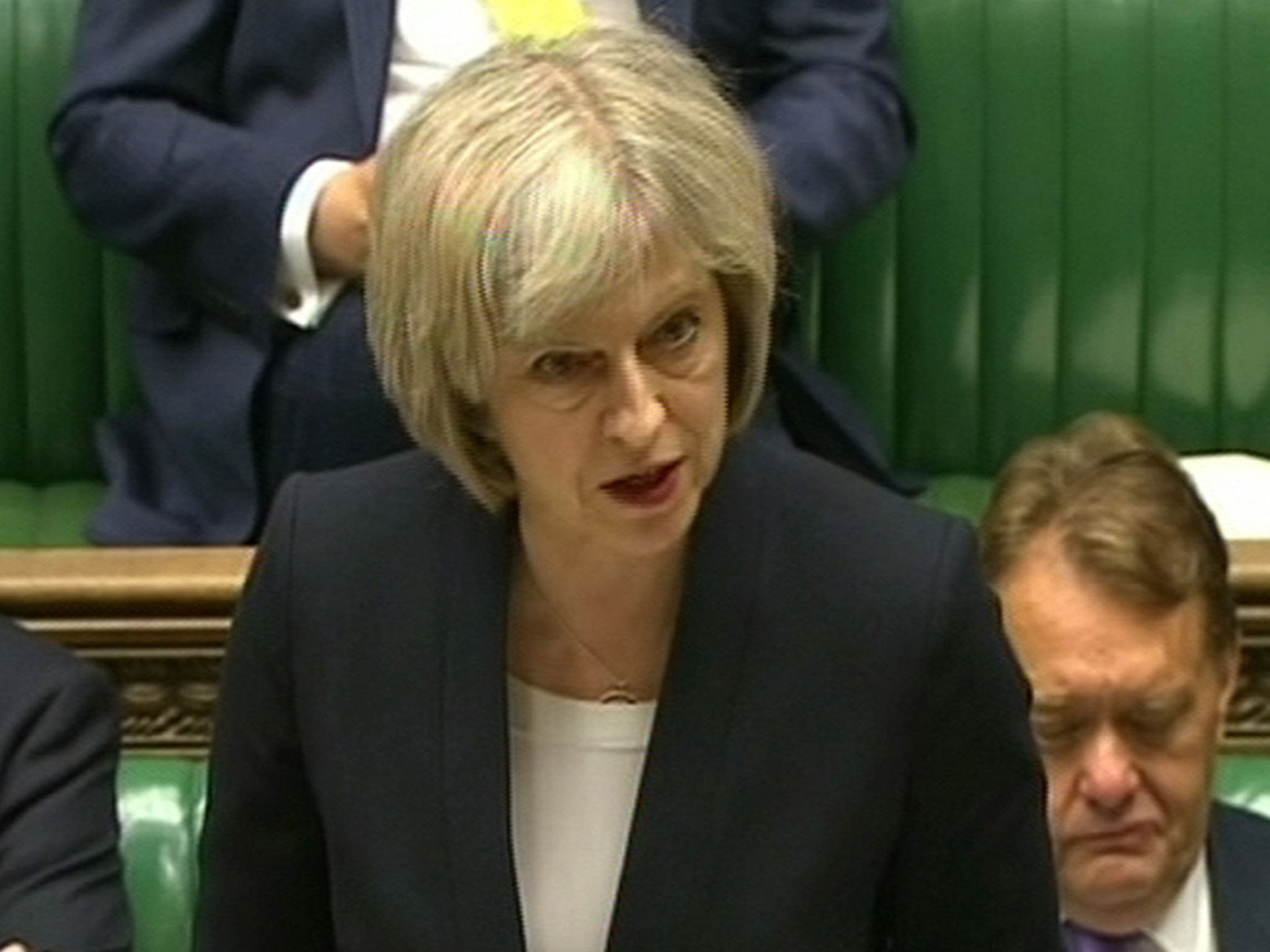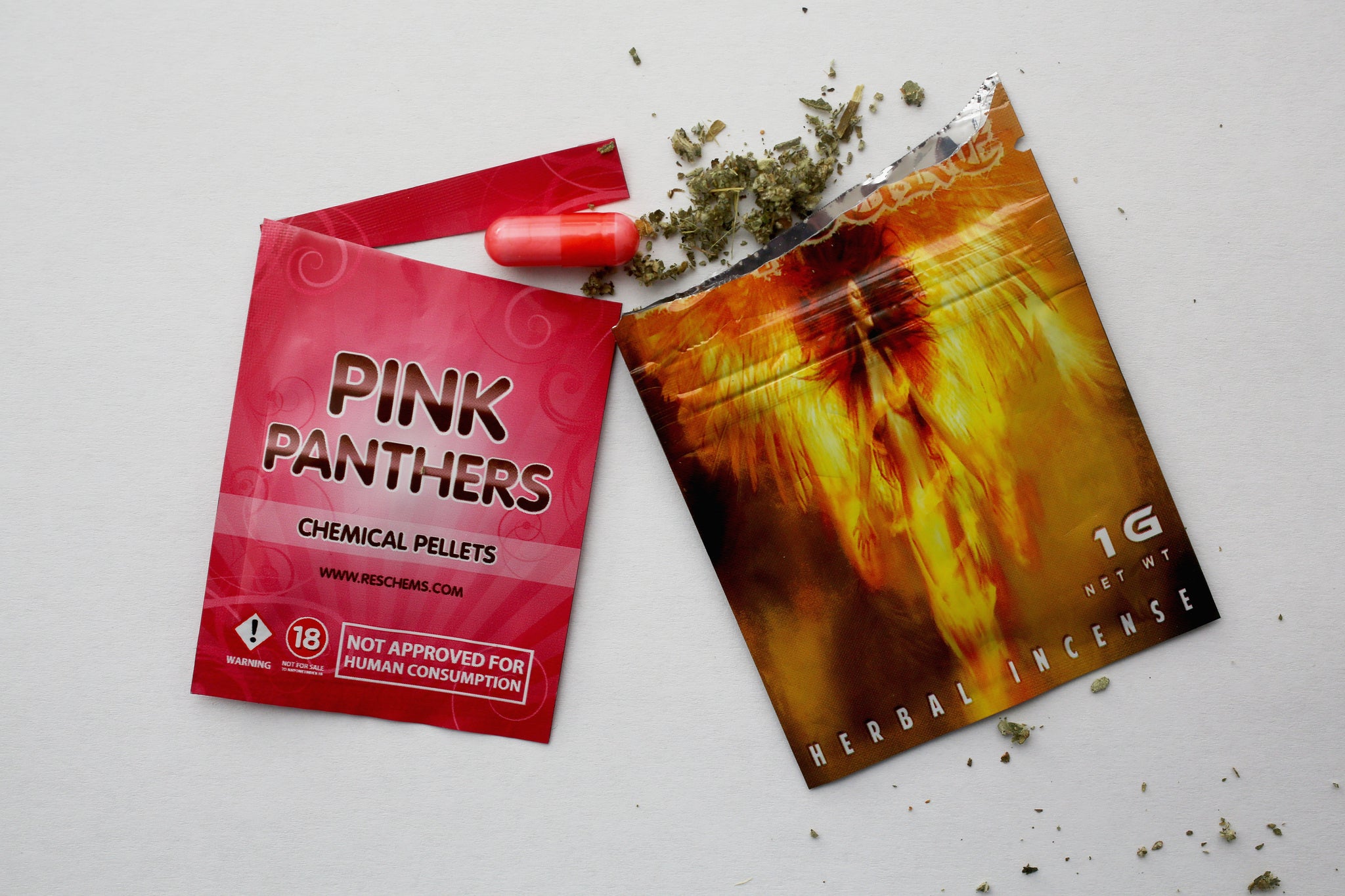Theresa May's legal highs ban has been savaged as 'impossible' - by her own advisers
The home secretary's Psychoactive Substances Bill would be unworkable, could 'seriously inhibit' medical research and could criminalise young people, says the Advisory Council on the Misuse of Drugs

Your support helps us to tell the story
From reproductive rights to climate change to Big Tech, The Independent is on the ground when the story is developing. Whether it's investigating the financials of Elon Musk's pro-Trump PAC or producing our latest documentary, 'The A Word', which shines a light on the American women fighting for reproductive rights, we know how important it is to parse out the facts from the messaging.
At such a critical moment in US history, we need reporters on the ground. Your donation allows us to keep sending journalists to speak to both sides of the story.
The Independent is trusted by Americans across the entire political spectrum. And unlike many other quality news outlets, we choose not to lock Americans out of our reporting and analysis with paywalls. We believe quality journalism should be available to everyone, paid for by those who can afford it.
Your support makes all the difference.Theresa May's flagship 'blanket ban' on legal highs has been savaged as "impossible" to implement - by her own advisers.
The Advisory Council on the Misuse of Drugs, made up of independent experts in the field, says that the home secretary's Psychoactive Substances Bill is unworkable in its current form because "the psychoactivity of a substance cannot be unequivocally proven".
In a withering verdict, the council says that the bill - which would ban all psychoactive substances unless they are specifically exempt - would "inhibit medical and scientific research", "criminalise" young people, and lead to the prosecution of responsible bosses running pubs, clubs - and even prisons.
Eight objections to the bill are outlined in a letter, sent by the council's chair, Professor Les Iversen, to the Home Secretary.
It says that although the council would support a blanket ban on new, or "novel" psychoactive substances, banning all psychoactive substances would unworkable.
" It is almost impossible to list all possible desirable exemptions under the Bill" , the letter says. "As drafted, the Bill may now include substances that are benign or even helpful to people including evidence-based herbal remedies that are not included on the current exemption list."
The psychoactivity of a substance cannot be proven because "determining psychoactivity is via human experience, which is usually not documented", the letter adds. Tests for such drugs may not stand up in court, the letter adds.
Difficulty testing for drugs through sniffer dogs and urine tests would also make "directors of premises and venues" liable for prosecution if substances are taken there. That would include "residential units, hostels, prisons, pubs, clubs, festivals and venues essential to the social and night-time economies".
The litany of concerns also slams the government for removing references to the harm caused by a drug - as opposed to its psychoactivity - from drug law. It means that suppliers of benign substances could be prosecuted, the council argues.

Scientific and medical research would be impeded the bill will "criminalise and apply disproportionate penalties to many otherwise law abiding young people and adults", especially ethnic minorities. So-called high-street "headshops", currently selling legal highs would close, driving customers towards "illegal dealing networks", the letter adds.
The letter calls for Mrs May to redraft the bill so that it covers only "novel psychoactive substances" and does not penalise social, as opposed to commercial, suppliers of legal highs. It also demands a properly-funded independent evaluation of the bill's impact.
Such objections to the bill, currently going through Parliament, are the latest among many. There have been protests outside Parliament and prominent figures such as Joan Bakewell and Brian Paddick, a former Met police chief, have objected in the House of Lords.
The government says the law is necessary because the law has failed to keep up with the emergence of new drugs, many of which can be harmful.
A Home Office spokeswoman said: "The Advisory Council on the Misuse of Drugs' scientific advice is greatly valued by the government.
"The home secretary has received Professor Les Iversen's letter on the Psychoactive Substances Bill and welcomes the ACMD's support of a move to reduce and prevent harms and preventable deaths caused by these dangerous drugs to young people, adults, families and societies.
"We will respond to the letter and recommendations before the Bill is next debated in the House of Lords."
Join our commenting forum
Join thought-provoking conversations, follow other Independent readers and see their replies
Comments